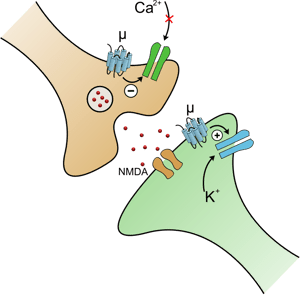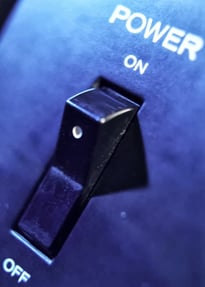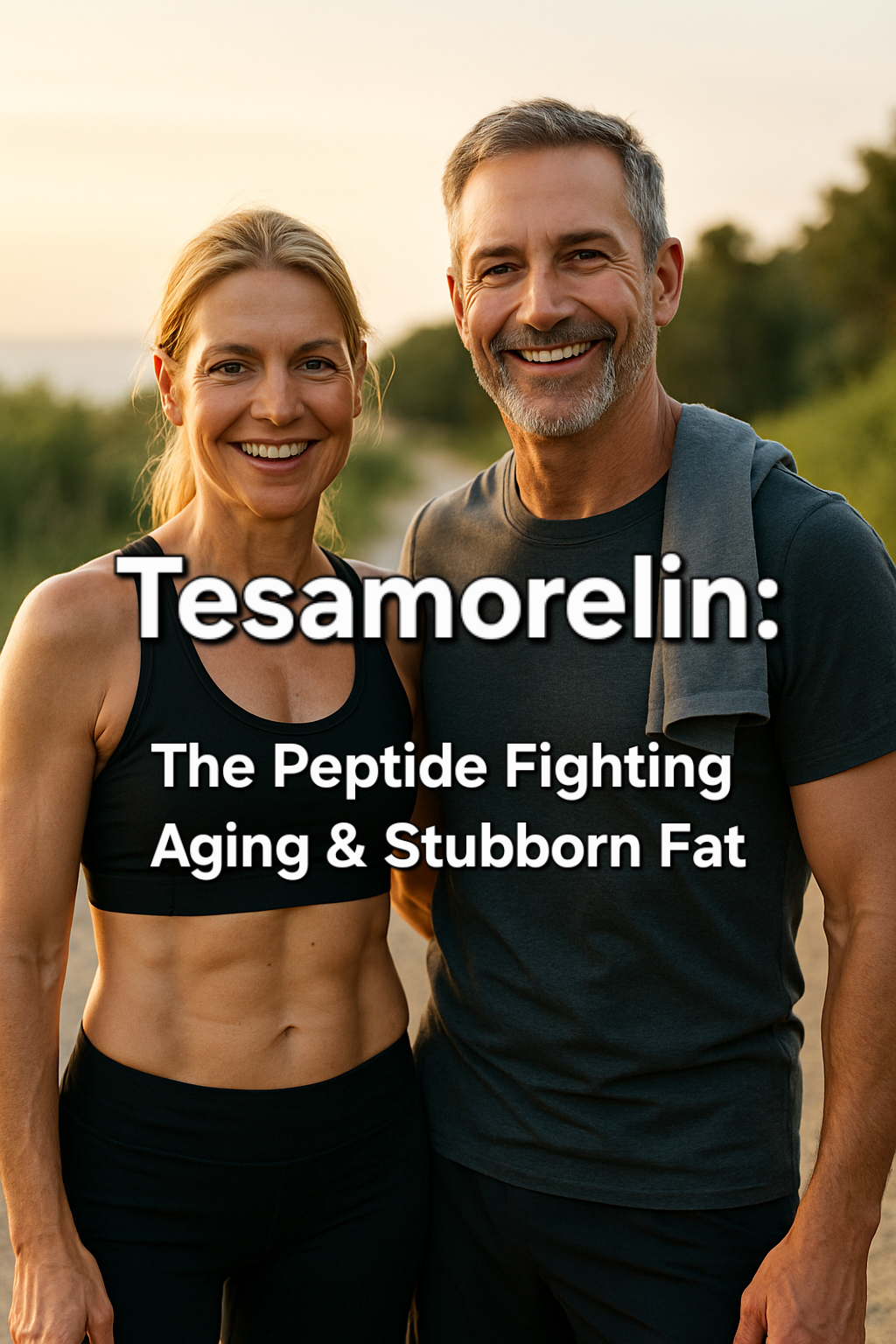No normal human being likes to be in pain. No man enjoys the consequences of low testosterone and feeling like a sack of useless poo with no motivation or zest for life either. Unfortunately, life can throw some physically hurtful curve balls in life that leave victims with broken bodies, literally. From auto accidents to sports injuries resulting in broken limbs, backs, necks, knees and much more – utilizing opioids to relieve pain is a much necessary option in extreme cases for many.
Although we have surely heard of the risks of abusing opioids as it relates to addiction and more, something many have not understood is the correlation between long term use of opioids and low testosterone with all its accompanied and unwanted misery for men.
In this article, we are going to cover and help provide an understanding of how all this comes about, how to best address it and how to minimize the negative effects given one’s circumstances when dealing with longer term pain management.
If you have a limited attention span and want to jump into certain highlights of this discussion, see below:
- What is an opioid
- Is Your Medication Killing Your Testosterone?
- How Do Pain Meds Lower Testosterone?
- Preventing Deterioration by Optimizing Hormones
- Take Home Highlights
What Is an Opioid?
 Opioids are a class of drugs that includes the illegal drug heroin as well as power pain relievers available by prescription, such as oxycodone (Oxycontin), hydrocodone (Vicodin), codeine, morphine, fentanyl, methadone, and many others. When taken appropriately, opioids are very helpful for treating acute pain relief and managing chronic pain.
Opioids are a class of drugs that includes the illegal drug heroin as well as power pain relievers available by prescription, such as oxycodone (Oxycontin), hydrocodone (Vicodin), codeine, morphine, fentanyl, methadone, and many others. When taken appropriately, opioids are very helpful for treating acute pain relief and managing chronic pain.- Opioids bind to opioid receptors in the brain and body to inhibit pain signals and reduce sensory neurons and pain when used legitimately and appropriately. Opioids can also cause intense euphoria or intense high that can lead to dependence and/or addiction, whether the drug ingested is heroin or a legally prescribed drug.
- The effects of opioids, particularly their rewarding, euphoric effects, are accentuated most when the drugs are delivered rapidly into the brain, thereby causing users “chasing the high” to snort or inject crushed prescription pills or heroin.
- Opioid overdose or effects from abuse include severe depression of the respiratory system, potentially causing respiratory arrest, coma, and can even death. Opioid dependence and withdrawal is characterized by constricted nausea, mental confusion, drowsiness, severe sweats and constipation.
- Other side effects that often come with long term use include decreases in sexual function, bone and hair loss, depressed immune system and being extra sensitive to pain.
- Opioids also interact with the endocrine system and its ability to function normally. This in effect, often results in hormonal imbalances with serious and very undesirable side effects. With regards to this article, suffering the consequences of low testosterone is a major focus of attention.
Is Your Medication Killing Your Testosterone?
Do you have a low sex drive or erectile dysfunction? Have you lost your “get up and go mojo” each day that you USED TO once have? Feel moody and less optimistic than you used to? Do you have less muscle and more unwanted (and unhealthy) body fat? If so, you may be a victim of low testosterone
Testosterone could be called a man’s most important and influential hormone because it controls and directs so many important characteristics that help a man be his best every day and in short, feel like a man! Testosterone affects every cell in the body and plays an essential role in determining a man’s overall physical and mental health. Driving on a full & healthy tank of “T”, helps to maximize life’s ride!
Normal levels of testosterone influence strong bones, a healthy heart, lend to having sharp cognitive function, promotes sexual function and a healthy sex drive – to name just a few.
We know that some men’s bodies do not produce enough testosterone as they should. In today’s modernized world, we also know that outside influences or substances we are exposed to, can disrupt our delicate endocrine balance and throw our hormones way out of balance leaving us looking and feeling miserable.
The U.S. Food and Drug Administration (FDA) estimates that 4 to 5 million American men may suffer from low testosterone, but only an estimated 5 percent are treated. Studies show that men naturally will lose testosterone at a rate of 1% – 2% a year after age 30. Given some circumstances (such as long term use of opioids) however, this rate is dramatically and dangerously increased at a much more rapid rate.
How Do Pain Meds Lower Testosterone?
Before we answer this question and do so in a very easy to understand layman’s term fashion, lets first understand how the male body produces endogenous (naturally made) testosterone, in a simplified fashion.
The male body with regards to how it produces, regulates and maintains a healthy level of testosterone, is like how the temperature of a home is maintained at a comfortable level. A thermostat senses the temperature of a home is getting a bit chilly, communicates to the furnace to fire up and kick out some heat which then elevates the temperature of the room that is then sensed again by the thermostat which then communicates to the furnace to shut down till further notice.
This cycle of communication is like a man’s HPTAxis system, which stands for Hypothalamus-Pituitary-Testicular Axis system. Essentially, a “check and balance” system like the thermostat has with a furnace or air conditioning unit, to keep balance within the home and in this case; one’s endocrine system to keep hormones optimized and working in harmony with one another so we can function correctly.
This hypothalamic–pituitary axis, which simply is communication from brain down to testicles and then back up to brain via various channels and communication pathways, is constantly under the effect of many substances including neurotransmitters, steroid hormones and endogenous opioids.
Exogenous (external, like pills) opioids exert an effect on the same receptors as endogenous (made by the body) opioids and have been shown to interfere with the release (including its pulsatile nature) of Gonadotropin-releasing hormone (aka; GnRH).
In short and aside from the technical language, long term use of opioids disrupts the needed feedback loop to hypothalamus in the brain which would normally “tell” the pituitary gland to send the needed signal (LH) to the Leydig cells (in testicles) where testosterone would be produced.
With referencing back to our analogy, this would be like taping or putting an air tight box (like an opioid/pain medication) around the thermostat disabling its ability to read the temperature of the home.
The house would eventually get cold and then stay cold (like having low T) because the thermostat (like pituitary gland) would get zero feedback that the room’s temperature (like the body’s testosterone levels) has dropped to dangerously low levels. And of course, would give no signal to the furnace (like testicles) to fire up and warm the house.
Slowly, the “heat” or testosterone output slows down to a screeching halt, contributing to a miserable and uncomfortable living environment from within!
Simply put in many cases of long term opioid usage; there has been dangerous disruption on the endocrine system by taking away the systems critically needed ability to communicate and keep hormones optimized. The results unfortunately, slowly take their toll not only on just testosterone but in many other associated ways as well.
What Are Risks of Having Long Term Low Testosterone?
Long term decreases in testosterone can contribute to many health and wellness concerns for men, including:
 Potential risk of all-cause mortality, myocardial infarction and stroke.
Potential risk of all-cause mortality, myocardial infarction and stroke. - Increased body fat.
- Loss of strength & muscle mass (leading to lower metabolic rate & lower ability to regulate blood glucose levels in time).
- Weaker bones.
- Decreased body hair.
- Increased fatigue and decreased cognitive functions.
- Negative effects on body’s ability to metabolize cholesterol.
- Decreased libido
- Lower confidence and energy
Preventing Deterioration by Optimizing Hormones
So, the assumed question that should be brewing is; what is the best way to prevent the deteriorating effects of a disrupted endocrine system and low testosterone? Unfortunately, like we could with the analogy used, we can’t just go out and buy another thermostat and furnace for our body!
With disruptions from pain medications on the body’s endogenous communications and resulting low testosterone production, the best way is to supplement testosterone back into the body to optimize all the functions and systems that heavily rely on a healthy level of testosterone. If we were to be fictitious and unable to go out and replace a broken thermostat or furnace, implementing some space heaters to live comfortably and not freeze to death would be a good option! Given you place them safely and correctly in the home so you don’t burn the house down that is!
Engaging in TRT the Right Way
Exploring a testosterone replacement therapy (TRT) program can be very overwhelming and scary for many men and, for good reason! There is a plethora of overwhelming information available today. Much of it is ill advised (even via some medical communities), some is “bro speak” with little scientific or educational backing and some fail to receive much needed guidance in order to implement one’s TRT program in the most responsible and (simply) educated manner possible.
Just like we would not want to recklessly place faulty space heaters in a house next to curtains or flammable items that would most likely and inevitably burn the house down, taking the time make a good decision as to where and how to start a TRT program is important as well.
The following are some basic questions to consider asking:
- Testosterone creams vs. injections; pro’s and con’s
- HCG; What are the benefits and do you need it?
- What are important health markers to be sure to have monitored?
- Is TRT forever? What if I want to come off? How do I keep my body receptive and healthy long term?
Take Home Highlights
- Opioids can cause opioid induced androgen deficiency by binding to the opioid receptors and prohibit the secretion of gonadotropin releasing hormone (GnRH), the needed “signals” to “tell” the body to manufacture testosterone.
- ^^ This contributes heavily to lower testosterone in both male and females. However, men are the ones significantly affected.
- Common side effects of low T are: low libido, sexual dysfunction (such as erectile dysfunction), loss of muscle and higher body fat, diminished cognitive (brain/thinking) function, fatigue, low bone mineral density (leading to osteopenia and eventual osteoporosis).
- Treatment for opioid induced androgen deficiency is testosterone replacement therapy (TRT).
- The two most effective options for TRT treatment is via injections or creams.
In Closing
When done correctly and responsibly, men can look and feel their best with an appropriate TRT program while managing pain and what life may have thrown at them. Dealing with tragedy and physical set backs is enough in and of itself. Suffering the lousy consequences of low testosterone is something most men have a choice in addressing. All of us deserve to look and feel good to our best abilities.
You are here visiting us today for a reason. You are likely a bit ahead of most in regards to addressing and wanting to take care of your health and well-being. Looking for and finding the right answers can be quite a task but we are here to assist you with finding the right solution to look and feel your best. Fill out our health history form today and let one of our heavily experienced consultants know a good time to discuss the process and more. Shortly, you can be well on your way to a new you!
Get more info here >Testosterone
Have questions? Contact us here > Contact Us
Cheers to feeling optimized,
- Roger and the YOUTH-Rx Team
References:
- https://www.ncbi.nlm.nih.gov/pmc/articles/PMC4590093/
- http://www.pnas.org/content/103/52/19925
- http://journals.lww.com/clinicalpain/Abstract/publishahead/Hypogonadism_in_Men_With_Chronic_Pain_Linked_to.99660.aspx
- http://xnet.kp.org/newscenter/pressreleases/nat/2013/013113-pain-meds-may-lower-testosterone.html
- http://www.drugabuse.gov/publications/research-reports/prescription-drugs/opioids/what-are-opioids
- https://www.nature.com/articles/srep06189
- https://academic.oup.com/jcem/article/82/11/3793/2866086
- https://www.ncbi.nlm.nih.gov/pubmed/26248567




